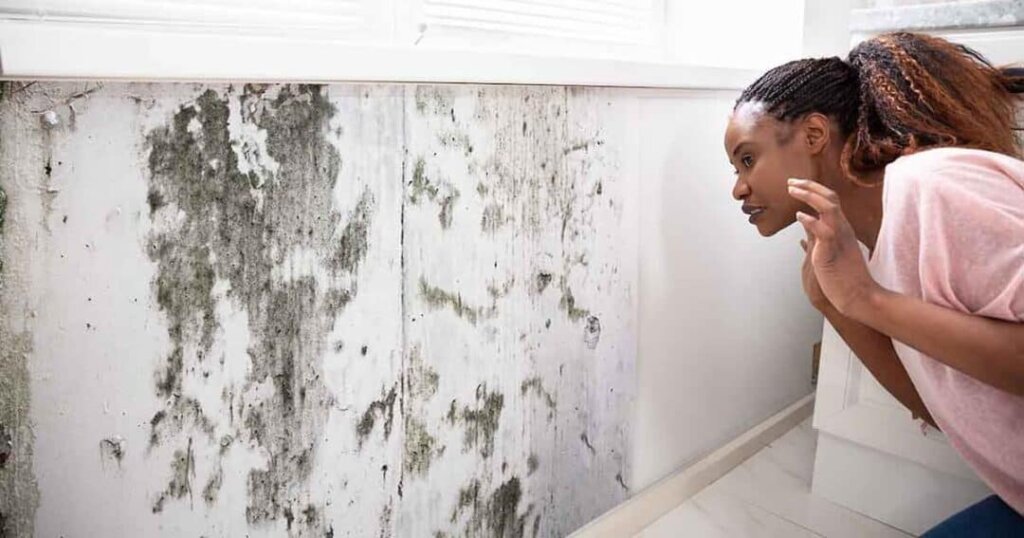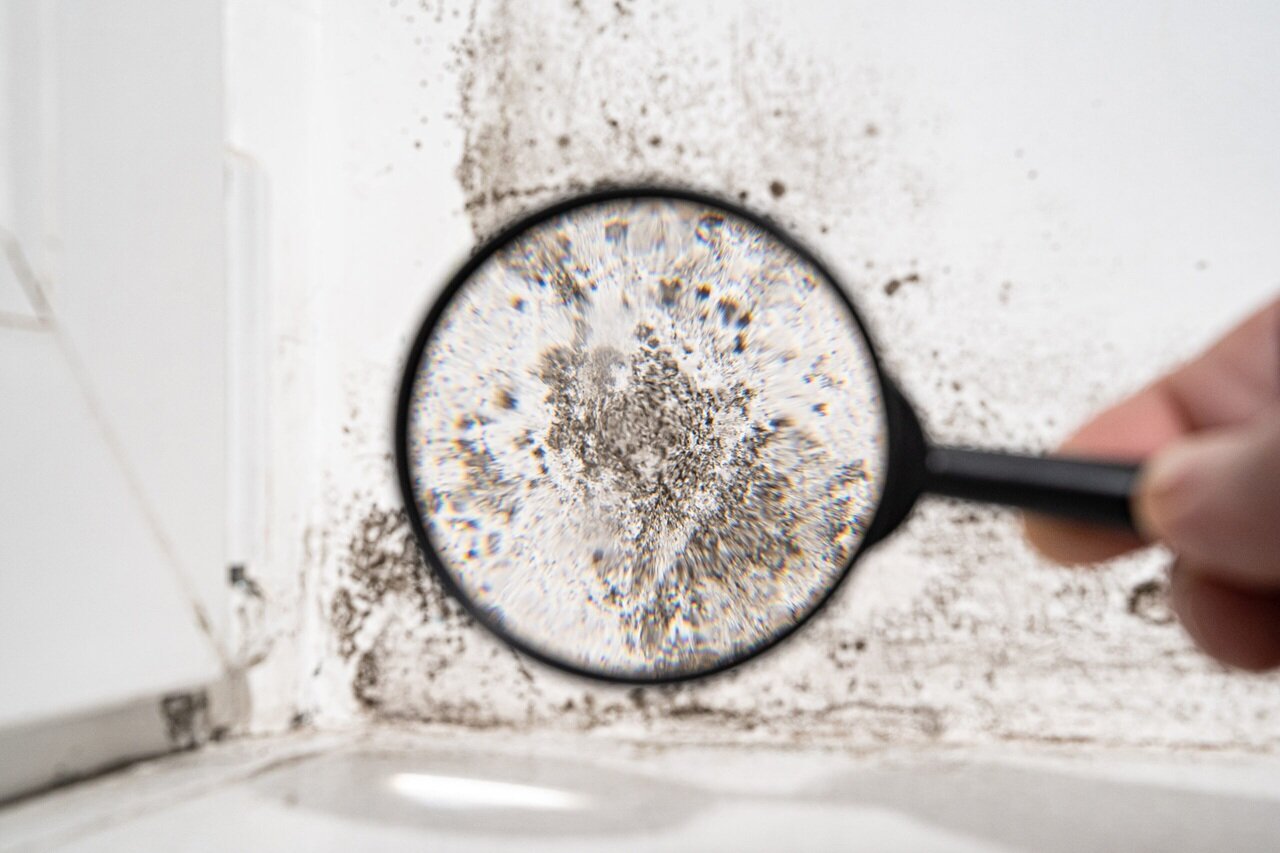Selling a house with black mold in Dallas–Fort Worth can feel overwhelming. Beyond the visible mold damage, it brings serious health risks, legal requirements, and costly mold remediation decisions. Many homeowners wonder: Can you sell a house with black mold in Texas, especially when the property’s value, safety, and real estate marketability are at stake?
The answer is yes, but selling a home with a mold problem through traditional channels can present challenges that delay or derail the sale.
This comprehensive guide explains what black mold is, why mold growth is common in the DFW region, how it impacts the selling process, and why selling your house as-is to a Texas cash buyer can be the fastest, safest, and most affordable path forward if you are facing a mold infestation.
Table of Contents
- Mold Exposure Risks
- How Mold Growth Damages Your Home’s Structure and Indoor Air Quality
- Mold Inspection: Identifying and Confirming Black Mold in Your Home
- Common Signs of a Mold Problem and Early Mold Growth Warning Indicators
- When You Have Known Mold Issues: Why a Professional Mold Inspection Is Necessary
- DIY Cleanup vs. Professional Mold Remediation
- Why DIY Mold Removal Often Fails and Can Make the Mold Issue Worse
- Hiring a Mold Remediation Company
- Challenges of Selling a Mold-Affected Home in DFW
- Texas Disclosure Laws for Known Mold Issues
- Why Real Estate Buyers and Lenders Hesitate When a Mold Issue Is Present
- Cost of Professional Mold Remediation Before Selling a Home
- Selling As-Is
- How Cash Buyers Handle Mold Issues After Purchase (So You Don’t Have To)
- Benefits of Selling As-Is When You Discover a Mold Problem
- Why Selling As-Is Helps You Avoid Mold Removal Costs and Health Risks
- A Faster Real Estate Sale Solution for Homes With Mold Issues
- Our Real Estate Process for Buying Mold-Affected Homes As-Is in Dallas–Fort Worth
- Receive a Fair Cash Offer That Accounts for the Mold Issue and Remediation Costs
- FAQs
- Contact Us to Sell Your Mold-Affected Home Safely
Mold Exposure Risks

Black mold, scientifically known as Stachybotrys chartarum, thrives in moisture. The Dallas–Fort Worth climate — with seasonal humidity, intermittent heavy rainfall, foundation shifting, roof leaks, and areas of poor ventilation — creates ideal conditions for mold growth. When moisture enters organic building materials like drywall, insulation, or wood framing, mold thrives and spreads quickly.
Exposure to black mold can lead to allergic reactions, coughing, sneezing, memory problems, headaches, and skin irritation. Long-term exposure may contribute to chronic respiratory illness or weakened immune function.
Children, seniors, and people with compromised immune systems are at elevated risk. These health risks make mold remediation not just a property concern, but a personal safety necessity.
Living in a house with mold can escalate from inconvenience to danger very quickly. Because of the potential health effects and contamination risks, many potential buyers refuse to consider mold-affected homes unless remediation has already been completed.
How Mold Growth Damages Your Home’s Structure and Indoor Air Quality
Black mold not only affects people, but it also damages the property itself. Mold infestation feeds on organic building materials, gradually weakening the structure of the home. If left untreated, mold can lead to structural softening, wood rot, damaged insulation, and drywall deterioration that require costly repairs.
Additionally, mold spores circulate through HVAC systems, ductwork, and living spaces. This results in cross-contamination, where mold spreads to multiple areas throughout the house. Once widespread, the mold problem becomes far more expensive to eliminate.
This type of contamination also drastically lowers indoor air quality. When airflow circulates spores, even rooms that appear clean can become unsafe. For these reasons, some real estate professionals advise homeowners not to attempt cleaning mold themselves.
Mold Inspection: Identifying and Confirming Black Mold in Your Home
Homeowners often notice discoloration, musty odors, or visible mold patches in bathrooms, kitchens, laundry rooms, crawl spaces, or attics. However, these visible signs may only represent surface mold. Hidden mold may exist behind walls, under flooring, or inside ventilation systems.
To confirm mold and understand its full extent, you need a professional mold inspection performed by a licensed mold inspector. A professional mold inspector conducts tests to determine mold type, source of moisture, spore levels, and affected areas. This documentation is crucial because Texas law requires full disclosure of known mold problems in real estate transactions.
Without proper documentation, a homeowner could be held legally responsible for concealed contamination even after the sale.
Common Signs of a Mold Problem and Early Mold Growth Warning Indicators
Recognizing mold early can help prevent it from spreading. Common signs include:
- Persistent musty odor
- Dark black or greenish patches on walls or ceilings
- Peeling or bubbling paint
- Warped floors or soft drywall
- Increased allergy symptoms indoors
- Condensation or dampness in crawl spaces or attic areas
Any unresolved moisture problem can result in mold infestation. Identifying and addressing the root cause is essential to preventing mold from returning after removal.
When You Have Known Mold Issues: Why a Professional Mold Inspection Is Necessary
In Texas, homeowners are legally required to disclose known mold issues to any prospective buyer. Failure to disclose known mold problems can result in lawsuits, repair liability, and financial penalties after closing. A mold inspection provides the documentation you need to ensure full disclosure and transparency during the selling process.
Skipping this step may jeopardize the transaction, especially if a buyer discovers hidden contamination during their own inspection.
DIY Cleanup vs. Professional Mold Remediation
When homeowners discover mold, the first question is whether they should attempt mold removal themselves or hire a mold remediation company. For minor mildew or non-toxic molds, DIY cleaning can be practical. But black mold requires professional mold remediation due to its health effects and contamination risks.
These companies use advanced containment protocols, HEPA filtration, moisture elimination, and safe removal procedures. The remediation process isn’t just about cleaning what you can see, but also about eliminating mold spores throughout affected areas and preventing mold from returning.
Why DIY Mold Removal Often Fails and Can Make the Mold Issue Worse
DIY attempts often:
- Spread airborne spores into previously unaffected areas
- Fail to treat hidden mold inside walls or beneath flooring
- Expose the homeowner to mold toxins during cleanup
- Allow mold to return because the moisture source remains unresolved
Because of this, DIY removal can lead to a larger and more expensive mold problem later.
Hiring a Mold Remediation Company
Professional remediation typically includes:
- Sealing and isolating affected areas
- Using negative air systems and HEPA filtration
- Removing contaminated drywall, flooring, and insulation
- Eliminating the moisture source to prevent growth
- Sanitizing and restoring affected materials
- Post-remediation mold inspection and clearance reports
While professional remediation is effective, it can be expensive, making it difficult for many homeowners preparing to sell.
Challenges of Selling a Mold-Affected Home in DFW
Selling a house with mold through traditional channels is often challenging. Many buyers avoid mold-affected properties because of:
- Health concerns
- Fear of contamination spreading
- Cost of hiring a mold remediation company
- Real estate agents recommending remediation before listing
Mortgage lenders may also refuse financing if mold contamination is confirmed, because mold can reduce the property’s value.
This can leave sellers with few traditional options.
Texas Disclosure Laws for Known Mold Issues
Texas property law requires homeowners to disclose known mold problems, past mold contamination, or any remediation work completed. Not disclosing mold issues risks violating state law and can trigger legal and financial consequences.
Full disclosure protects the seller, the buyer, and ensures the real estate transaction is legally valid.
Why Real Estate Buyers and Lenders Hesitate When a Mold Issue Is Present

Many buyers — even ones willing to renovate — draw the line at mold contamination. Lenders and insurers often view mold as a significant liability. Even after remediation, some buyers still worry about lingering spores or future regrowth.
This often leads to buyers backing out once the inspection report is returned.
Cost of Professional Mold Remediation Before Selling a Home
Professional remediation can range from:
- $2,000–$7,500 for localized mold issues
- $10,000–$30,000+ for widespread mold infestation
- More if structural repairs or HVAC contamination are involved
This cost may not be in the best interest of a homeowner who already plans to sell.
Selling As-Is
Yes, and selling your house as-is to a Dallas cash buyer is often the cheapest option and the simplest solution.
We buy houses in any condition, including homes with:
- Black mold
- Past mold issues
- Structural mold damage
- HVAC contamination
You do not need removal, mold testing, or remediation before selling. We take care of those steps after closing, not before.
How Cash Buyers Handle Mold Issues After Purchase (So You Don’t Have To)
When we purchase a mold-affected property:
- We hire licensed companies
- We pay for the repairs
- We handle mold testing, clearance, and restoration
You walk away with cash, free from stress, repair obligations, and liability concerns.
Benefits of Selling As-Is When You Discover a Mold Problem
Selling as-is helps you avoid:
- Out-of-pocket mold removal costs
- Risk of exposure during cleanup
- Delays caused by real estate agents and showings
- Negotiations that collapse because of inspection reports
It allows you to move forward quickly and safely.
Why Selling As-Is Helps You Avoid Mold Removal Costs and Health Risks
Handling mold yourself can put your health at risk, especially if a professional containment system is not used. Selling the house as-is eliminates this risk entirely.
A Faster Real Estate Sale Solution for Homes With Mold Issues
Traditional sales can take months.
We can close in as little as 7 days, depending on your timeline.
You receive:
- No inspection delays
- No lender requirements
- No repairs required
Just a simple, fast sale.
Our Real Estate Process for Buying Mold-Affected Homes As-Is in Dallas–Fort Worth
- Tell us about your property, including any known mold issues.
- We assess the home, no-pressure and no obligation.
- We make a fair cash offer, based on the home’s as-is value.
- You choose the closing date, often within days.
You get paid. We handle the contamination.
Receive a Fair Cash Offer That Accounts for the Mold Issue and Remediation Costs

We create offers that reflect:
- Current market value
- Extent of mold contamination
- Remediation and repair costs
No hidden fees. No commissions. No surprises.
FAQs
Do I need a mold inspection before selling?
Not if you sell your house to a cash buyer in Fort Worth.
Will you really buy the house without cleanup?
Yes. We purchase homes as-is, including mold.
How can I prevent mold growth in my next home?
Manage moisture sources, ventilate properly, and schedule occasional mold inspections.
Contact Us to Sell Your Mold-Affected Home Safely
If you’re facing a mold issue, you do not need to risk your health, stress over repairs, or pay high remediation costs.
We buy houses with mold in Dallas–Fort Worth, exactly as they are. Request a free, no-obligation cash offer today.

Zach Shelley
Zach Shelley is a seasoned real estate investor with a diverse network spanning across the nation. As the founder of his own real estate venture, Zach is committed to offering innovative solutions to homeowners facing various real estate challenges.. Through his dedication and strategic approach, Zach continues to make a significant impact in the real estate industry, providing homeowners with alternative pathways to navigate their property transactions.



